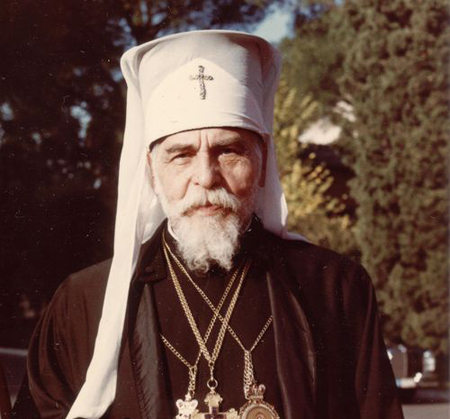Dialogs on unity
Kharkiv hosted a symposium to mark the 125th birth anniversary of Josyf Slipyj
On March 7, Kharkiv National Vasyl Karazin University held a scholarly symposium to mark the 125th birth anniversary of Josyf Slipyj, the Primate of the Ukrainian Greek Catholic Church (UGCC). The event gathered academics, clergymen, theologians, historians, students, and public figures. Among those present were His Eminence Hlib Lonchyna, Bishop of the Ukrainian Catholic Eparchy of the Holy Family of London, who knew Josyf Slipyj personally; Myroslav Marynovych, Vice Rector of the Ukrainian Catholic University (UCU); His Eminence Ihor (Isichenko), Archbishop of Kharkiv and Poltava (Ukrainian Autocephalous Orthodox Church); His Eminence Vasyl (Tuchapets), chief hierarch of the UGCC’s Kharkiv exarchate; Viacheslav Pototskyi and Andrii Domanovskyi, associate professors at the Ukrainian Studies Department of Kharkiv National Karazin University; and Vladyslav Yatsenko, chair of the history section at the Kharkiv Historical and Linguistic Society.
The Kharkiv event, organized by the Ukrainian Catholic University and Kharkiv National University’s Philosophy School, followed a series of symposiums, “Patriarch Josyf Slipyj – Known and Unknown,” held shortly before in Kyiv, Poltava, and Zaporizhia.
Debate moderator Andrii Domanovskyi believes that Josyf Slipyj is a symbolic figure for Kharkiv. The academic recalled that the patriarch had sojourned in the city in July-August 1961, when he was being transported to a prison camp (Slipyj served a total 18 years in Soviet camps). A memorial plaque has been put up in honor of the UGCC primate three times since 2005 on the building of a former transit prison at 5, Malynovskoho St., but vandals destroyed them all.
Almost all the participants pointed out that respect for the patriarch’s figure unites Western and Eastern Ukraine, Kharkiv and Lviv, and “the world’s unity in goodness” became the leitmotif of this spiritually significant forum, Domanovskyi said. Oleh Turii, director of the UCU’s Institute of Church History and coordinator of events, emphasized that marking the patriarch’s anniversary is important both for the unity of different denominations and for the history of Ukraine and the issues of nation formation.
Yet Archbishop Ihor (Isichenko) noted that unity does not mean dissolution in an alien milieu. The speaker recalled how the Kyiv Church was losing its unique identity under the pressure of the Moscow Patriarchate and influence of the Western Church and how church hierarchs put up resistance in defense of this identity.
Myroslav Marynovych, Vice Rector of the Ukrainian Catholic University, delivered a speech full of empathy. The academic himself served a number of years in Soviet prisons, and, for this reason, some places in the patriarch’s reminiscences he commented on were, as he said, ‘shooting’ at him with their profound truthfulness. Domanovskyi pointed out that Marynovych had had personal experience of what Josyf Slipyj described as spiritual resistance to the system that was killing human dignity and personality and reducing man to the level of an animal.
The debaters favored the idea of including history of church into the course of history of Ukraine in schools and universities because it was a sociopolitical institution that played a major role in the making of Ukrainian national identity from at least the 17th century, the times of Petro Mohyla.
“The speakers also touched on the ways of launching an interdenominational dialog. The very fact of the participation of representatives of different denominations in the forum is proof of their readiness to come into contact. The Greek Catholic, Roman Catholic, and Orthodox clergy are holding rather a well-balanced and friendly dialog,” Domanovskyi muses. “But the problem is that the vast majority of Moscow Patriarchate hierarchs are not prepared for such meetings on the official level.”
Also important was the speech of the Orthodox theologian and philosopher Oleksandr Filonenko on the necessity of an in-church cultural dialog. He was the only one who began to speak in Russian, emphasizing that the call for a dialog should be made in, of all places, Kharkiv in both Ukrainian and Russian languages. “Filonenko told an interesting story of the ‘theology of prison camps.’ The martyrs of different denominations, who ended up there, stayed in the same conditions, mingled with one another, and managed to find a common language. But then every church honored its own martyrs only. In other words, martyrs used to unite but their followers are now separating from each other. This must be changed. And the ‘prison camp theology’ can become an important experience that should be studied and understood. It will perhaps promote an interdenominational dialog in the future,” Domanovskyi says in conclusion.
Newspaper output №:
№17, (2017)Section
Topic of the Day





